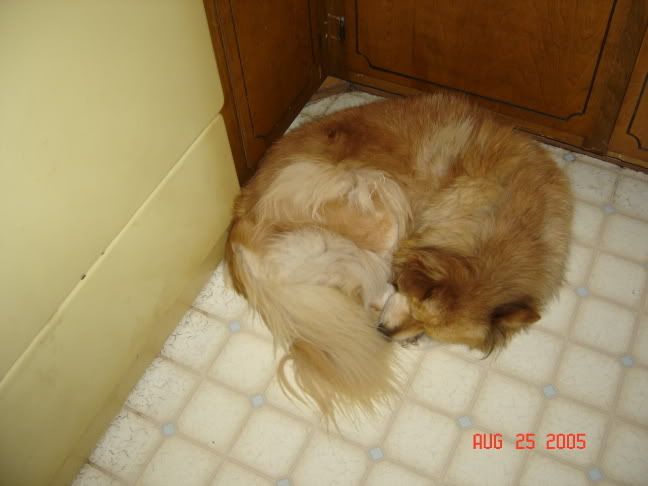I'm rereading the Little House books right now, as a way to unwind after the mental stress of finals and school.
I just finished The Long Winter.
I love all the books in the series, except Farmer Boy, which I've never read, or only read part of, because it's just about Almanzo's life. And only a little bit of it. Whatever.
I know there are issues with the authenticity of the books, otherwise they wouldn't be labeled as fiction, right? Plus, how much influence did her daughter have, who was anti-Commie and these were published in the late 30s and early 40s... blah blah.
I didn't know that for a long time, and I still don't know the whole story.
But knowing bits of it explains the sheer insanity of the people of De Smet in The Long Winter.
Almanzo Wilder (Laura's future hubs, remember) is determined to save his seed wheat for the next spring. That means not selling it to the starving townspeople. That means risking his and another person's neck to buy somebody else's seed wheat 20 miles from town, in crazy-ass blizzard season. The person makes the same arguments Almanzo's been making the whole book. Almanzo says you can't plant money, but damn, man, I know the winter won't last forever.
And I don't know why the townspeople didn't pool their resources early on. Why did they all freeze in their own houses when they could have stayed in the hotel or a few other buildings all winter, sharing fuel and food? There couldn't have been that many people there. It just hurt my head - we weren't talking about a small town in the 1980s, this is small town's first winter in the 1880s. I thought in the good ol' days, everybody helped everybody else out.
But no, apparently they do not. They are obsessed with not being in debt to one another. Like over nails. (Little House on the Prairie.)
Then there's the racism, which I can explain, so while I may not like it, it at least makes sense. Not like this suicidal winter where they all hid from each other instead of sharing. One man bought up all the fuel. Why didn't people stay at his house?
Pa went over to the Wilder's. They had lots of food, a nice fire, a warm place. Why couldn't he bring his family over for the day? I don't get it. I thought people "visited" in the days before the evil TV took over.
I love this book, don't get me wrong, it just leaves me scratching my head.
And oh-so-gratfeul for the modern world, no matter how fucked up it may be.
ETA: I'm rereading this as well. The introduction, which described the Ingalls' previous ways of life as subsistence probably explains why they're so hesitant to depend on others. It just seems so damn weird to me, is all. I can handle twisting hay to make "logs", but not independence to the point of emaciation. Ok, bad example. But I mean, the rest of the trappings of their life are fascinating, and usually easy to understand. This is not.
Another thing that is not, that started in the very first book, is the stoic nature required of the girls. We meet Laura as four-year-old. Who is expected not to cry. In On the Banks of Plum Creek, when the neighbor's girl takes her doll, she is told "For shame!" when she cries. Fuck that noise. Yeah, I hate little kid tantrums as much as the next person, but tears? Dammit, I still cry. A lot. (Which may have something to do with medications and the constant changing, but still.) Sometimes, I don't know why I cry. My dad got mad at my mom when she cried. I am so glad his poisonous ideas are out of here.
How the hell can it be bad to cry? Or a sign of immaturity?
It's bad to repress your feelings.
Then again, she grew up in the Victorian era, and some of what they say about them is true.
ETA yet again: It seems we reach out quicker in our more fucked up disconnected modern age. Our heater is possessed and will cost 2 grand to fix. My mom has been sick all semester, so yeah right.
The church, which she hasn't been to in a long-ass time, but her friend works (or volunteers there), brought by a get-well card and this oh-so-warm blankie. Not much, but still.
When my family was turned upside down by my cousins' moving in with us and my bad health (which meant smaller paychecks for the mom), we got plenty of food and help from the crisis center and the church and PEOPLE.
And just last weekend, Uncle Danny chopped wood (this electric chopping thing on his trailer) on a friend's property. Mom kept trying to pay him, he refused, and I finally took the money and put it in her purse.
People still give a damn about other people's well being, despite the collapse of society and family and all that jazz.
Yes, Almanzo and Cap risked their lives for the town, but why weren't they pooling their resources beforehand? What was the point of living in town, as Laura asked frequently, if they were even more isolated than they would be on the claim?
Subscribe to:
Post Comments (Atom)



No comments:
Post a Comment